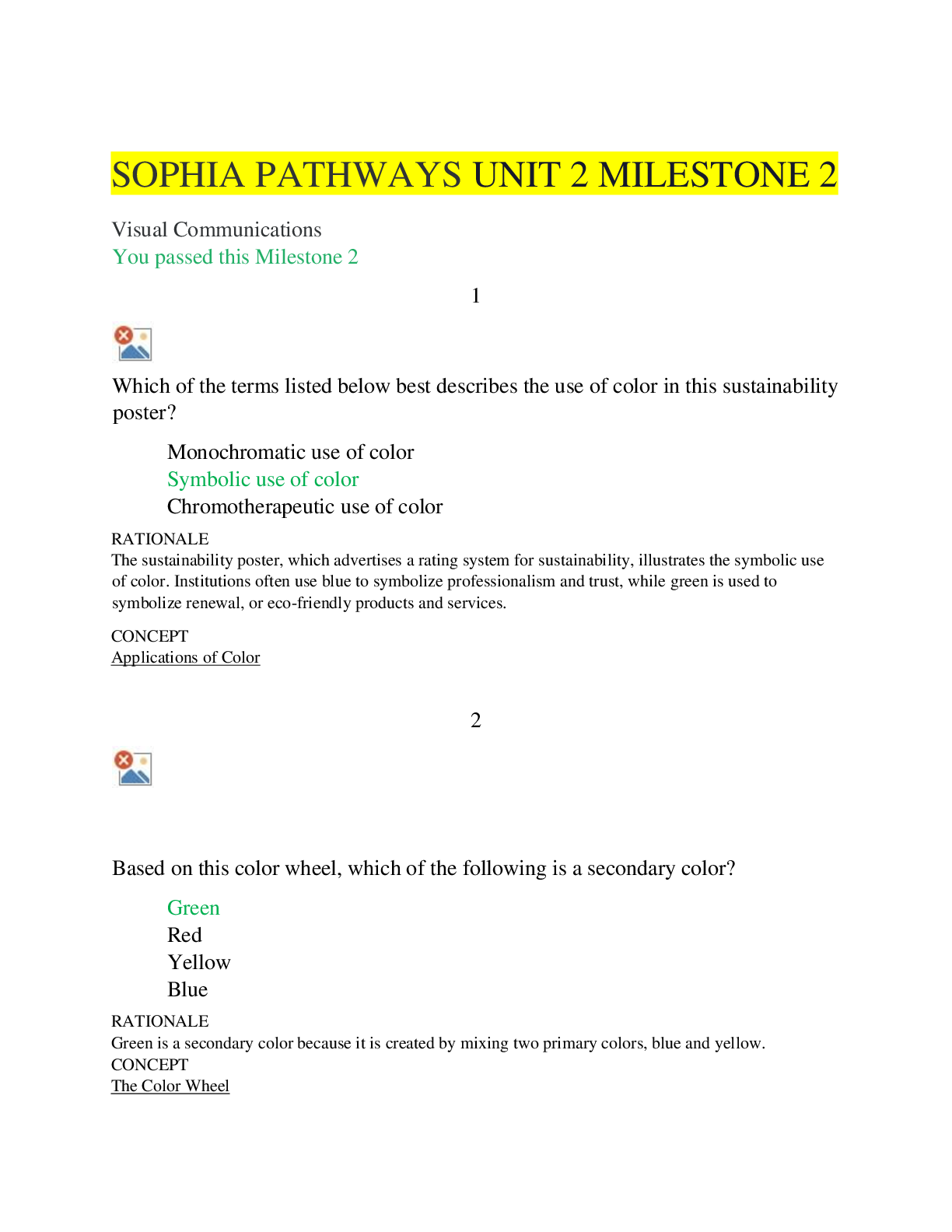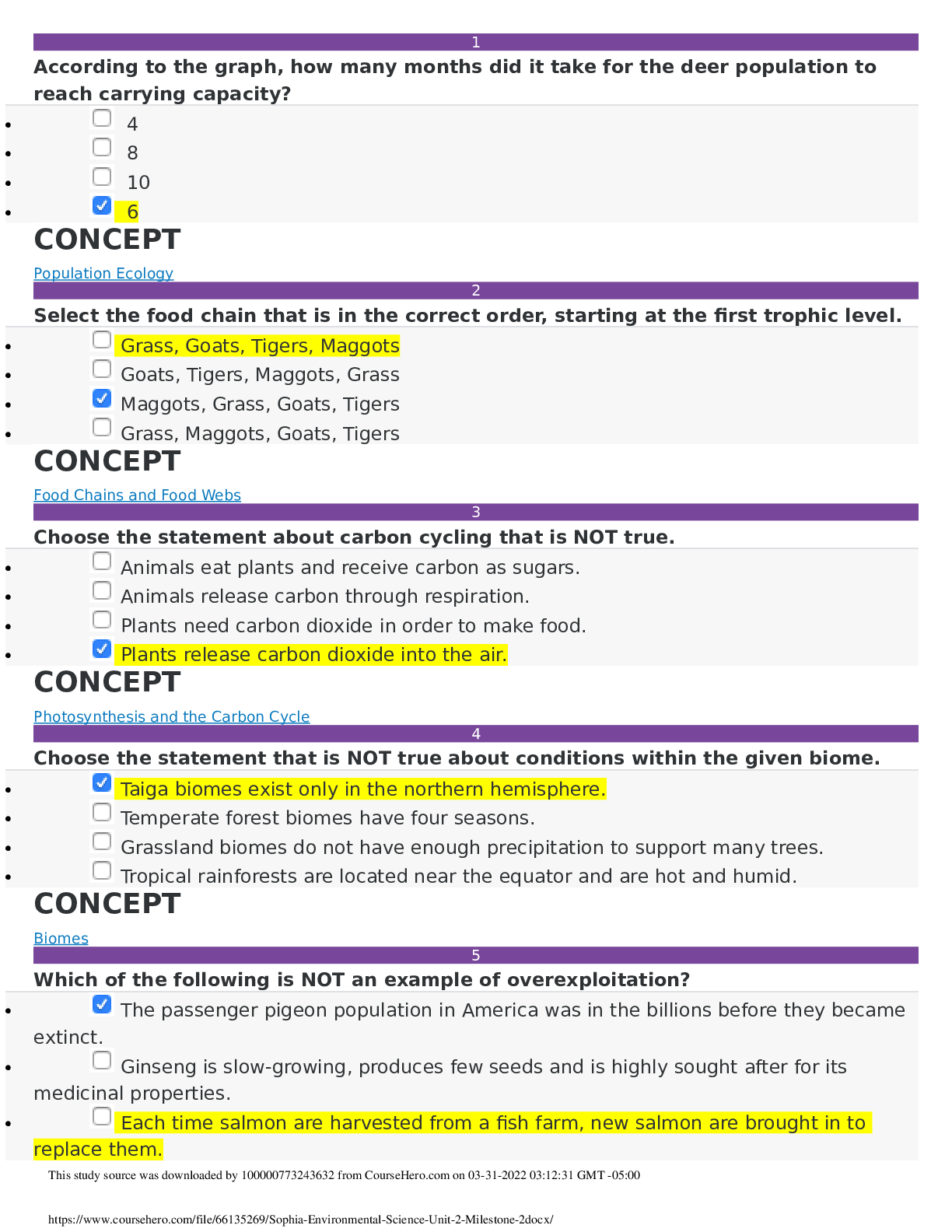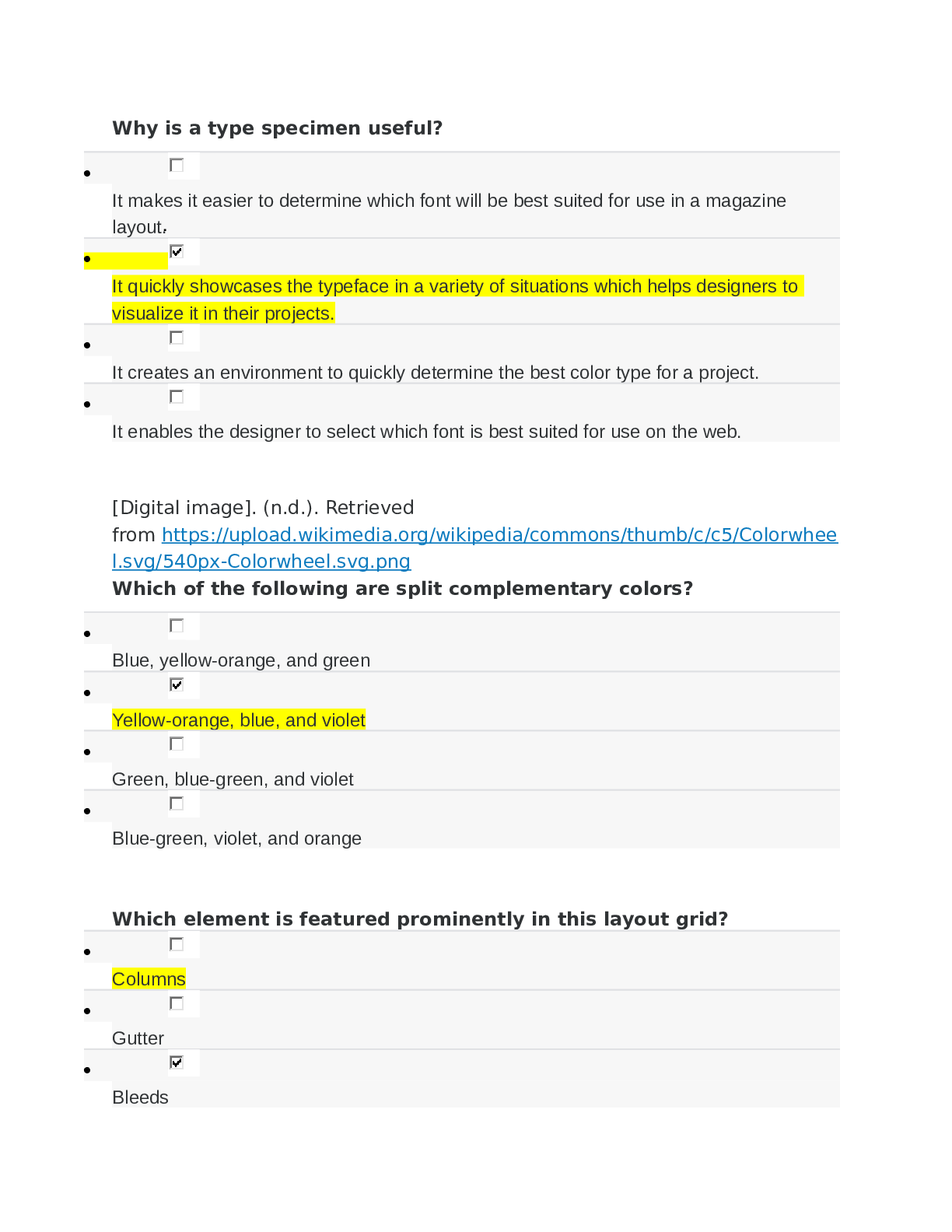Religious Studies > SOPHIA PATHWAY > Sophia Learning - Approaches to Studying Religions Unit 2 Milestone 2 (All)
Sophia Learning - Approaches to Studying Religions Unit 2 Milestone 2
Document Content and Description Below
Sophia Learning Approaches to Studying Religions Unit 2 Milestone Study Guide 1. Which of the following best describes a “ritual”? 2. Which of the following is an example of a non-theistic re... ligion? 3. Which of the following is among the seven sacraments recognized by Catholic Church and other Christian denominations? 4. In most forms of Islam, what is Allah’s relationship to the physical universe? 5. Which of the following is the name of a book within the Hindu scriptures that has led some to argue that Hinduism could be described as a monotheistic religion? 6. When religious transmission occurs between members of the same religion, it may be referred to as: 7. Which of the following religions do not exhibit characteristics of animism? 8. Which is another name for God according to Judaism? 9. In the Confucian tradition, why is evil problematic? 10. What do most Christians believe about the Trinity? 11. Which of the following is a common feature present in most religious narratives? 12. What is the goal of the Taoist practice? 13. Which of the following is a reason presented in this course for a person choosing to adopt atheism as his or her “religious” worldview? 14. In many primal traditions, deceased individuals are remembered by the living members of their family tree, who refer to the dead as . 15. Which of the following is NOT one of the “Big Questions” religions seek to answer, as described in this pathway? 16. Which of the following is a way to eliminate suffering, according to Buddhist teachings? 17. As mystical events, what do “anatman” in Buddhism and “advaita” in Hinduism have in common? 18. Which of the following choices is a common element or purpose of creation stories, as outlined in this pathway? 19. Which of the following is the correct definition of pantheism? 20. Which of the following is the goal of Taoist practice, as taught from its beginning in ancient China? 21. Which Christian tradition has the most developed form of monastic silence? 22. Isaac Newton is associated with a form of deism that views God as having made the laws of the universe and then let it run its course, or as a: 23. Which of the following best describes the relationship between revelations and religious narratives? 24. Monotheism is a believe that: 25. Which of the following best describes how the “Summum bonum” is described in Christianity? [Show More]
Last updated: 2 years ago
Preview 1 out of 2 pages
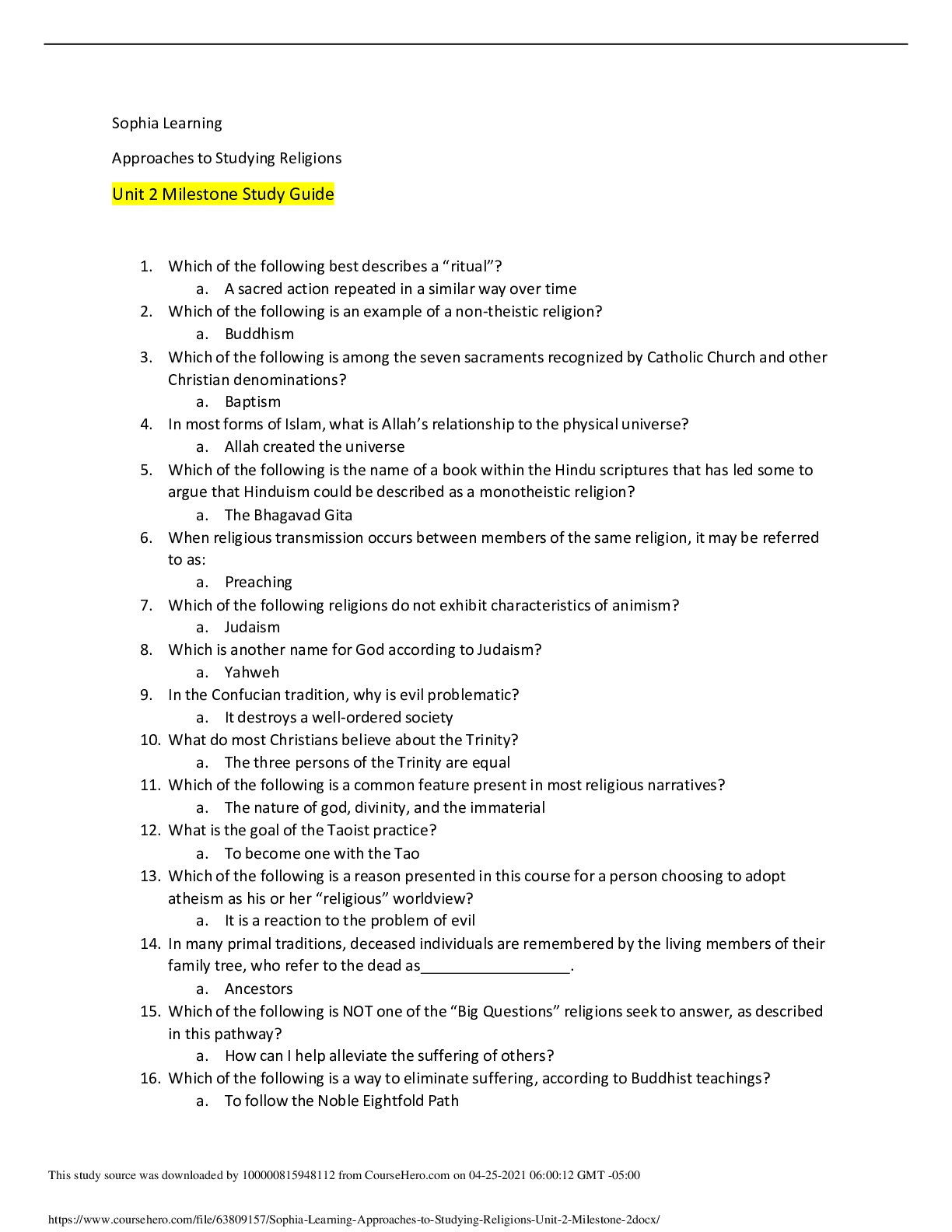
Buy this document to get the full access instantly
Instant Download Access after purchase
Buy NowInstant download
We Accept:

Reviews( 0 )
$7.00
Can't find what you want? Try our AI powered Search
Document information
Connected school, study & course
About the document
Uploaded On
Apr 25, 2021
Number of pages
2
Written in
Additional information
This document has been written for:
Uploaded
Apr 25, 2021
Downloads
0
Views
142

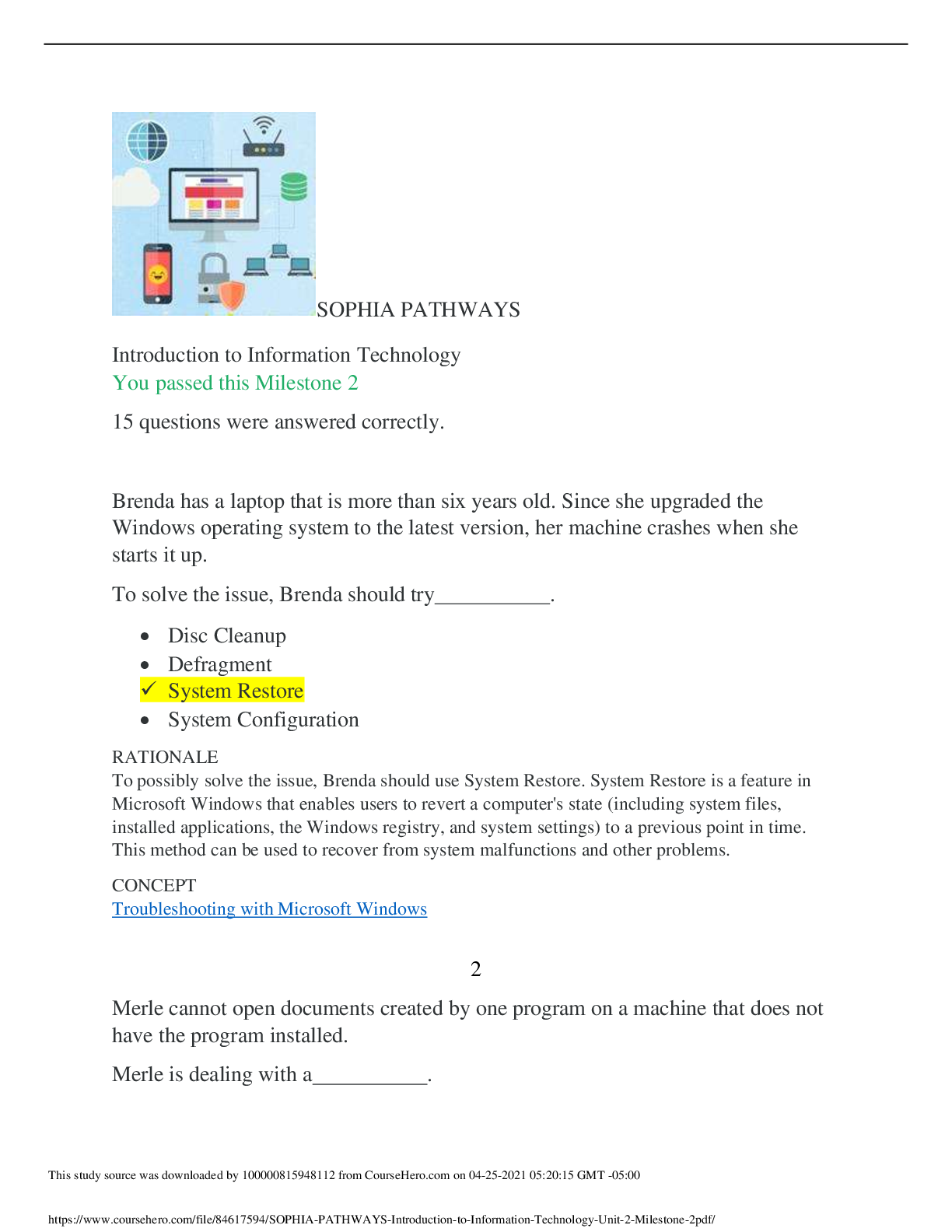
 – Ashford University.png)

